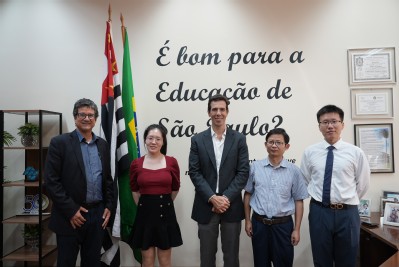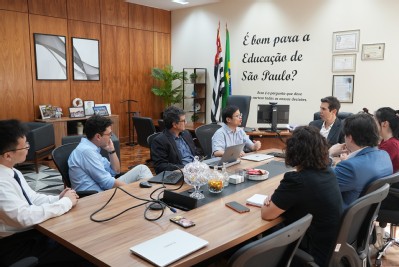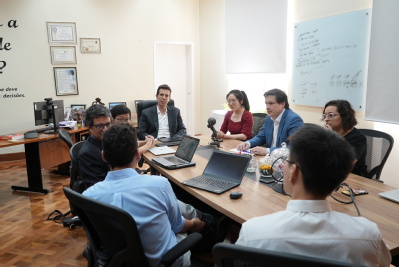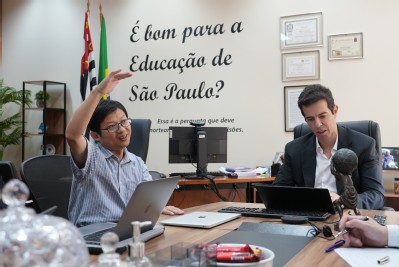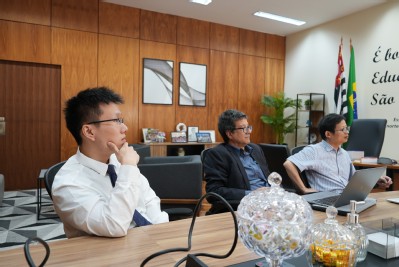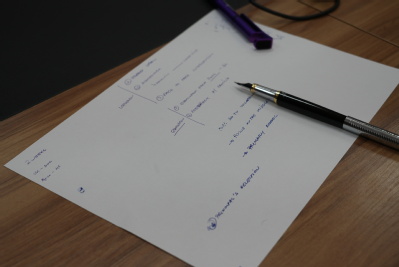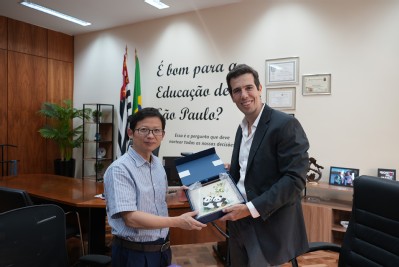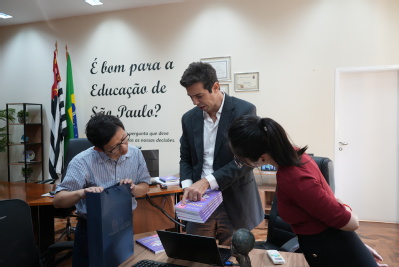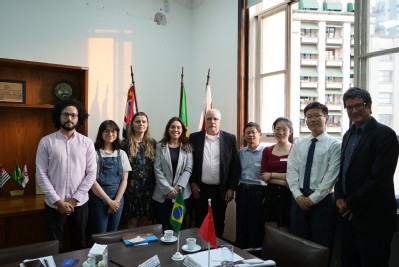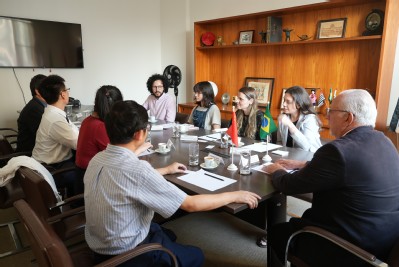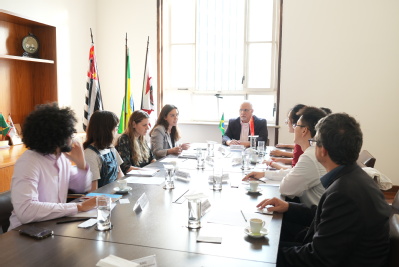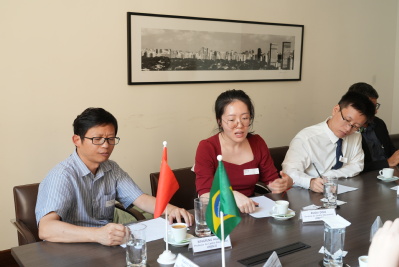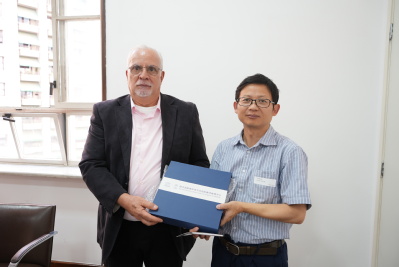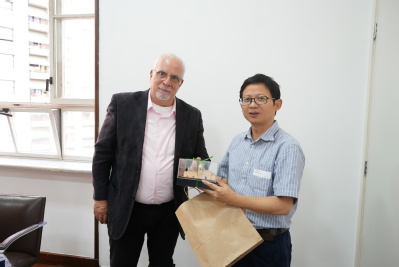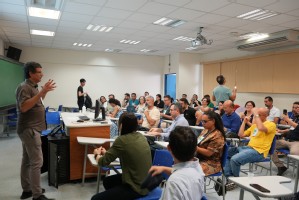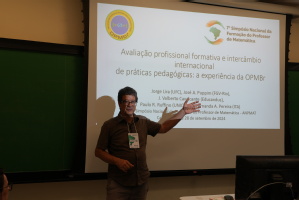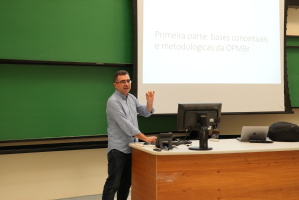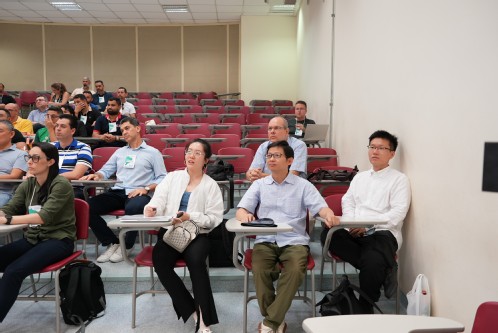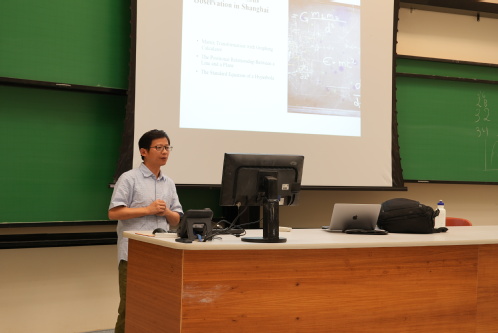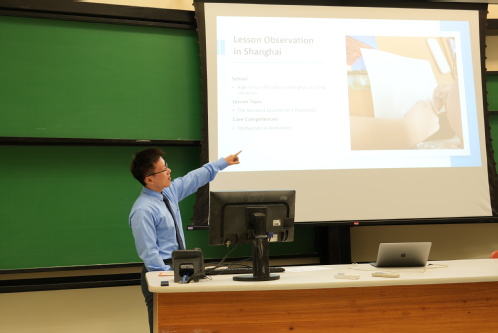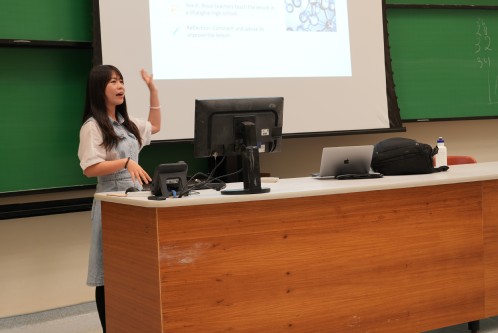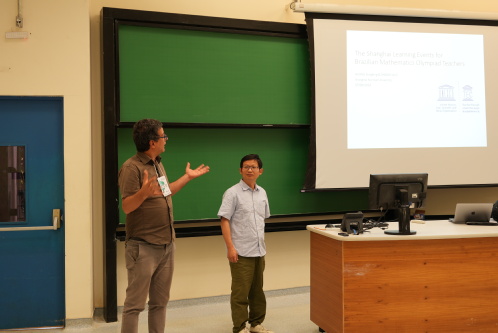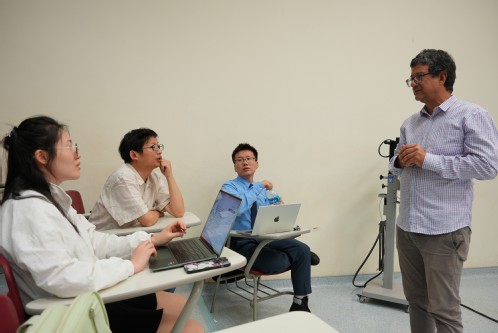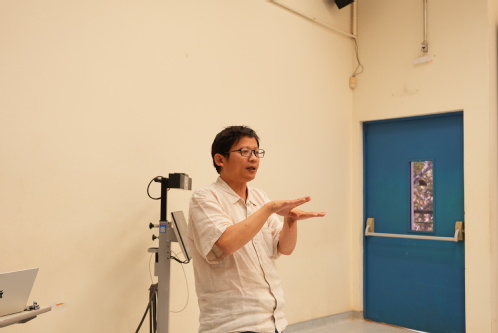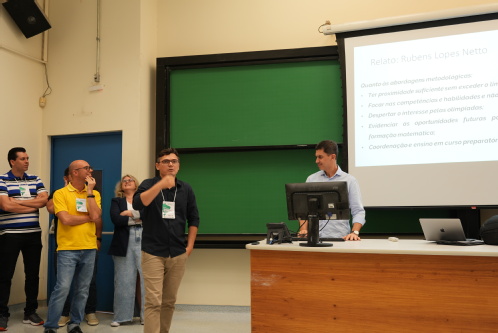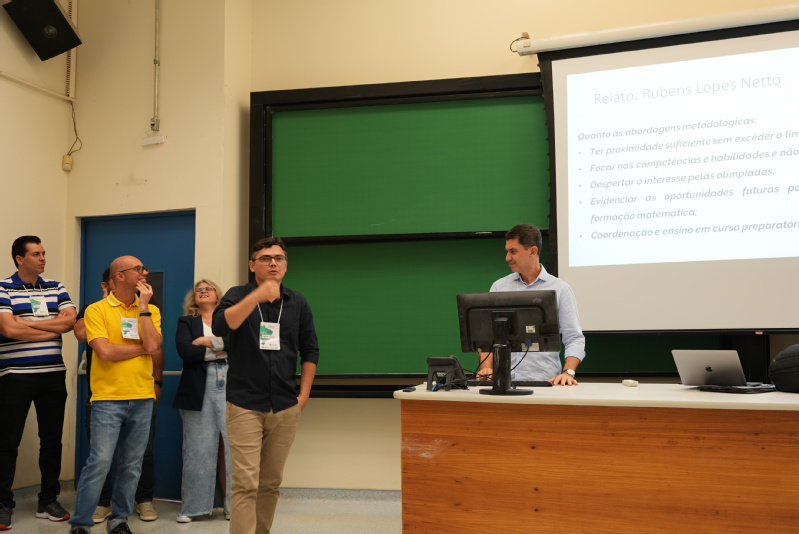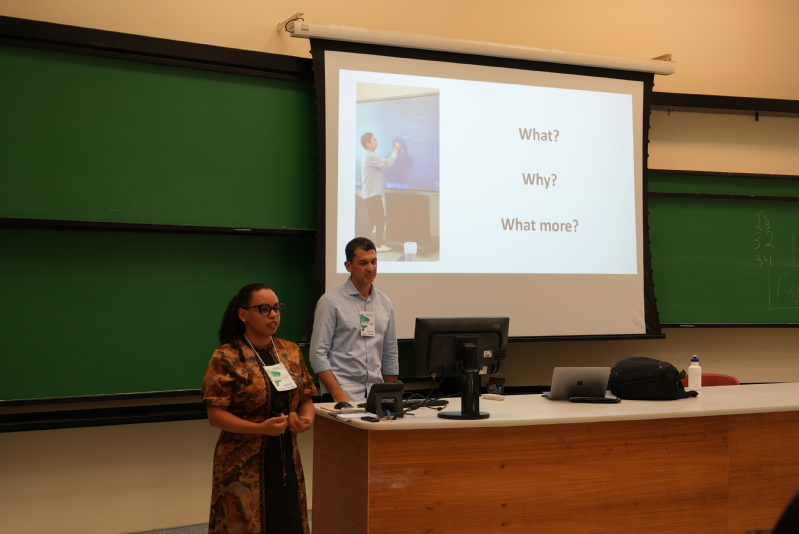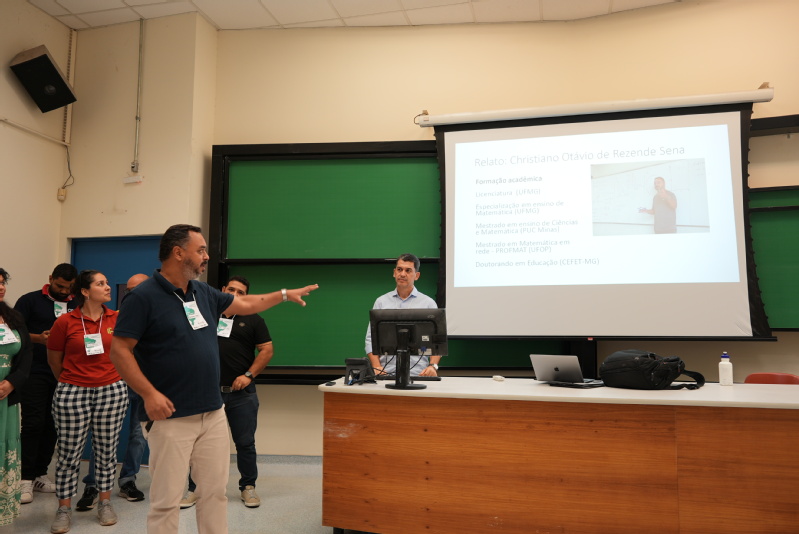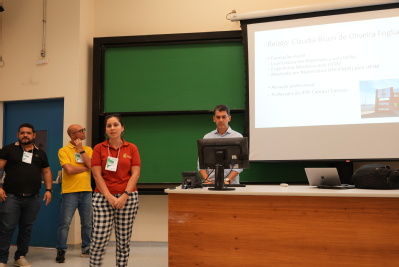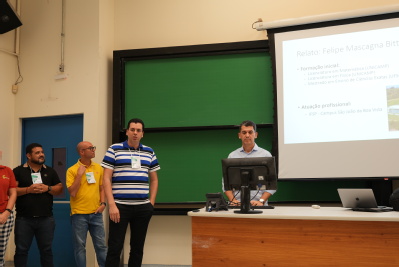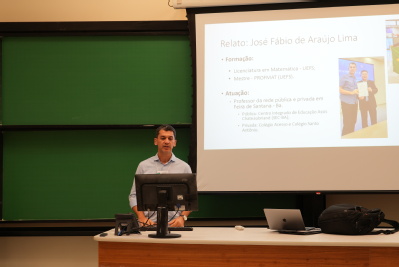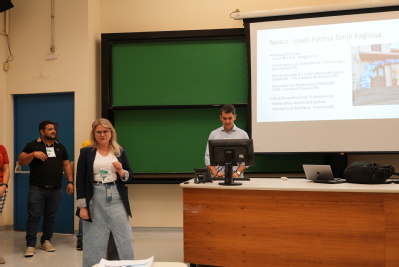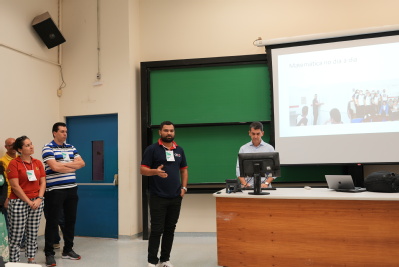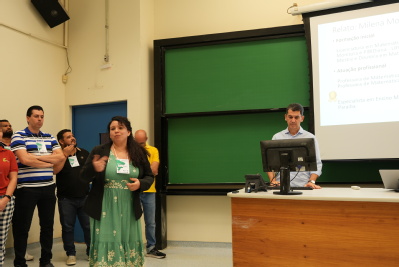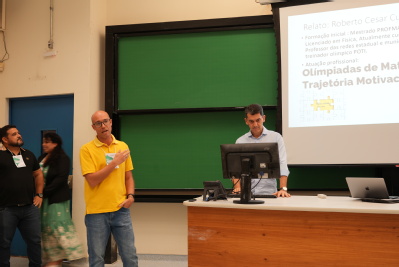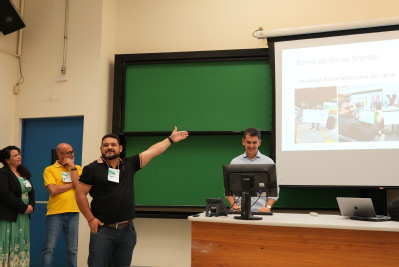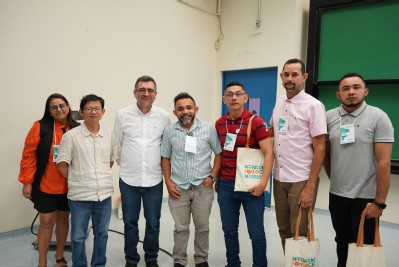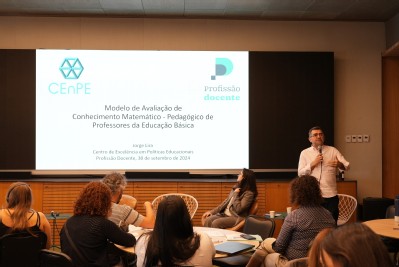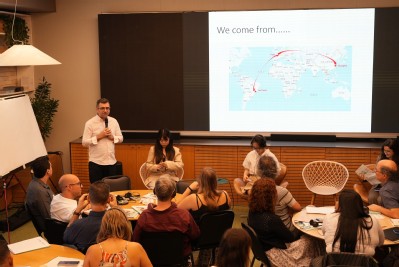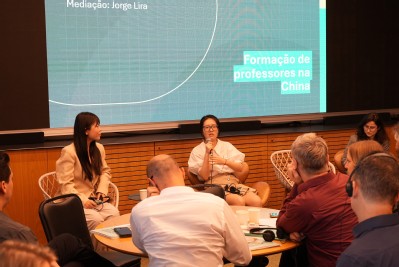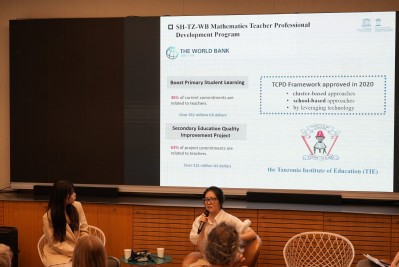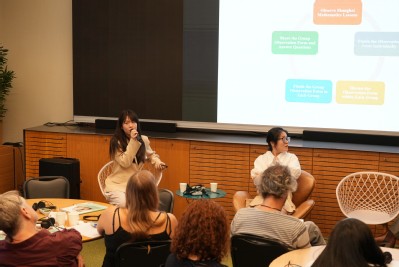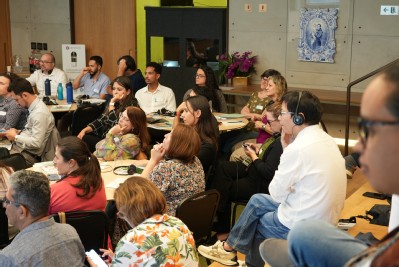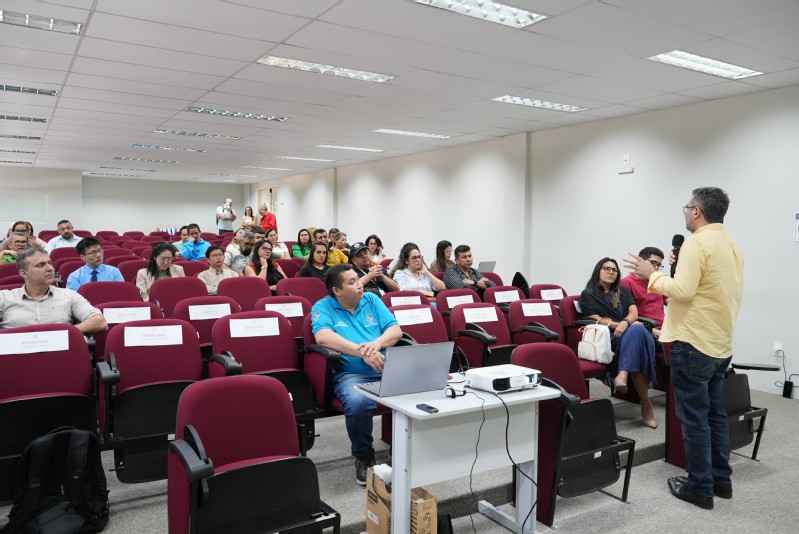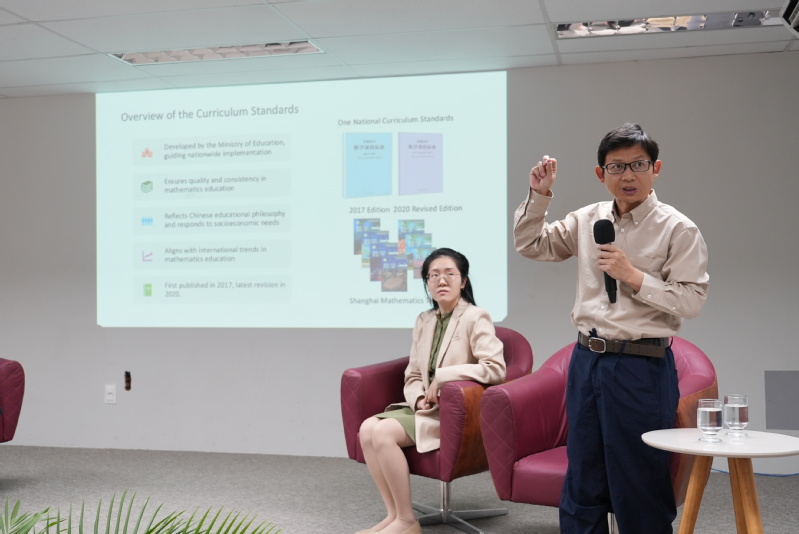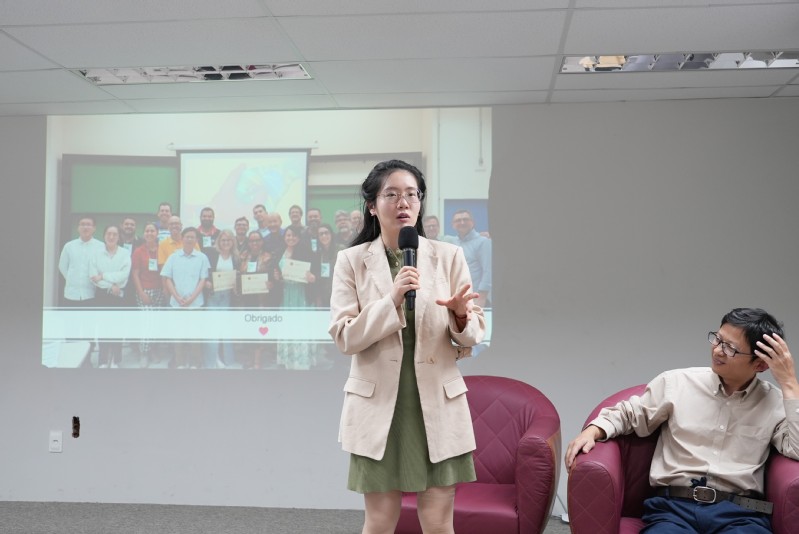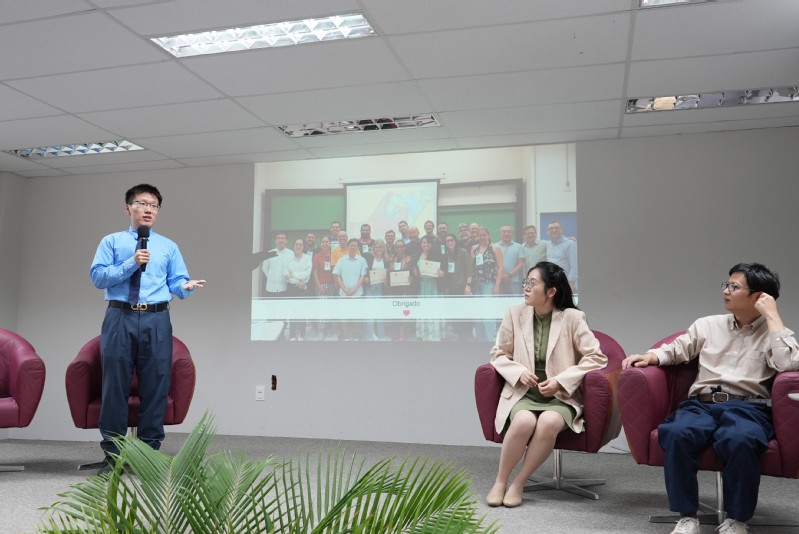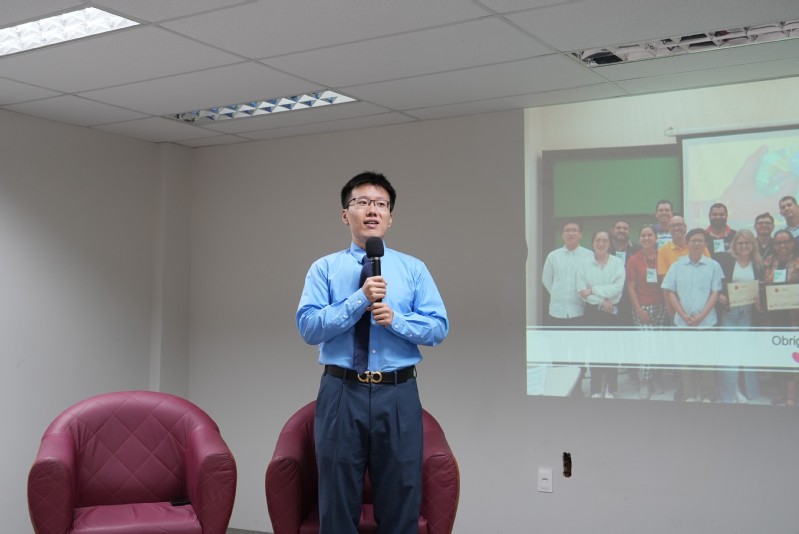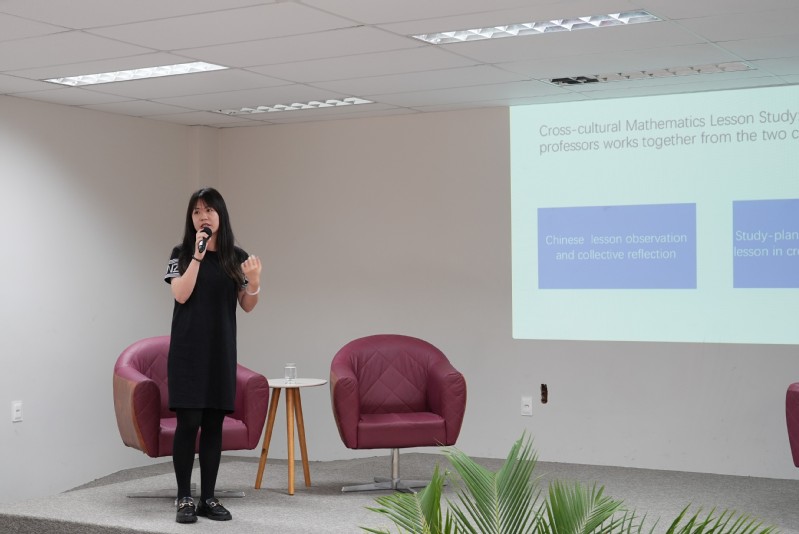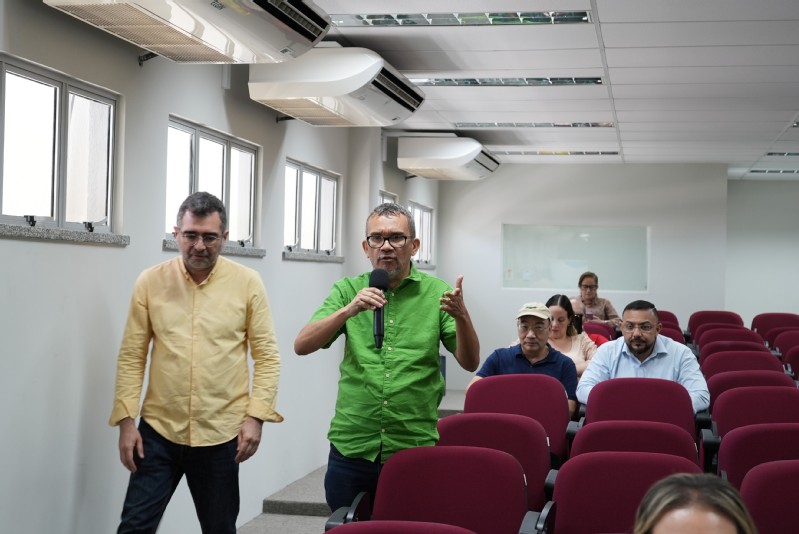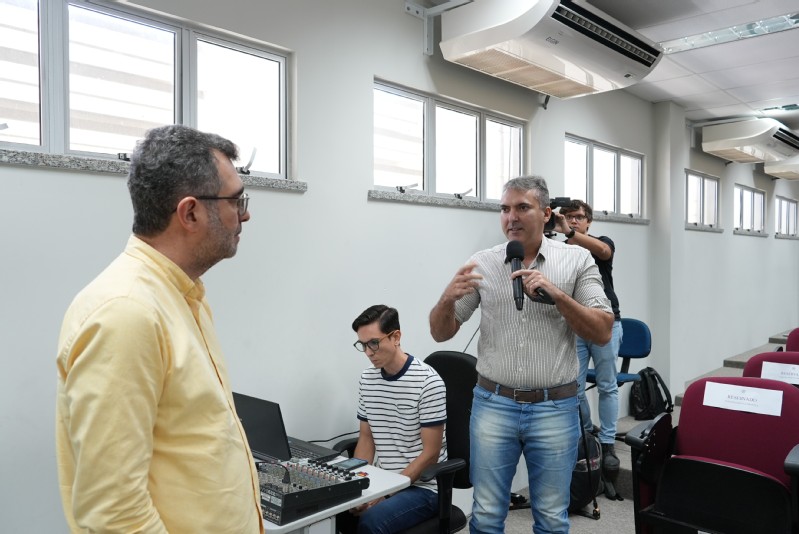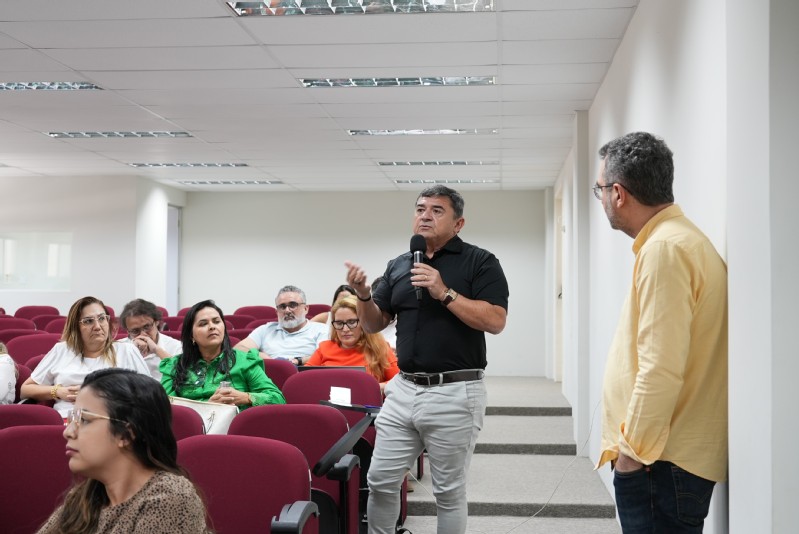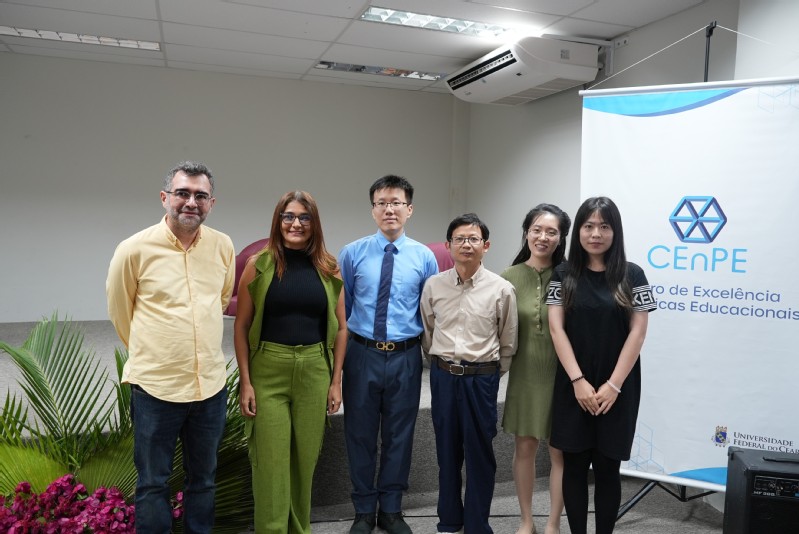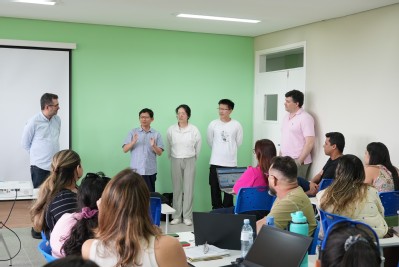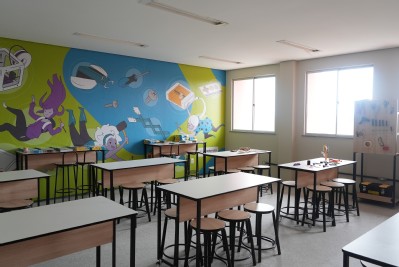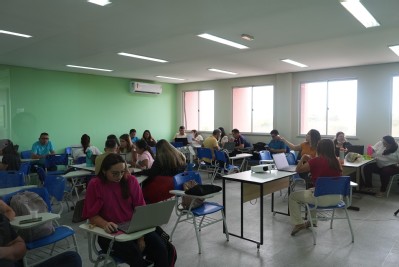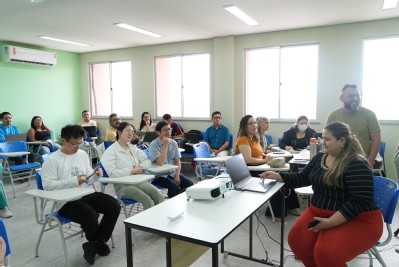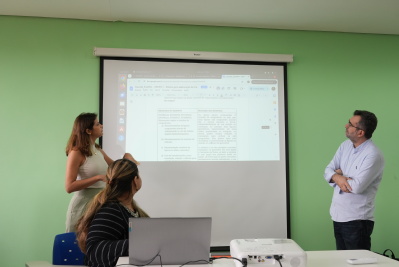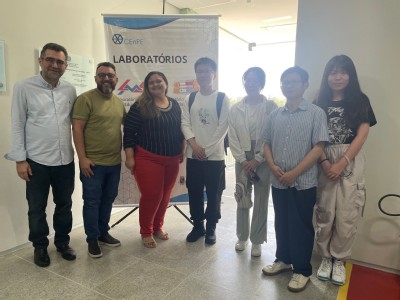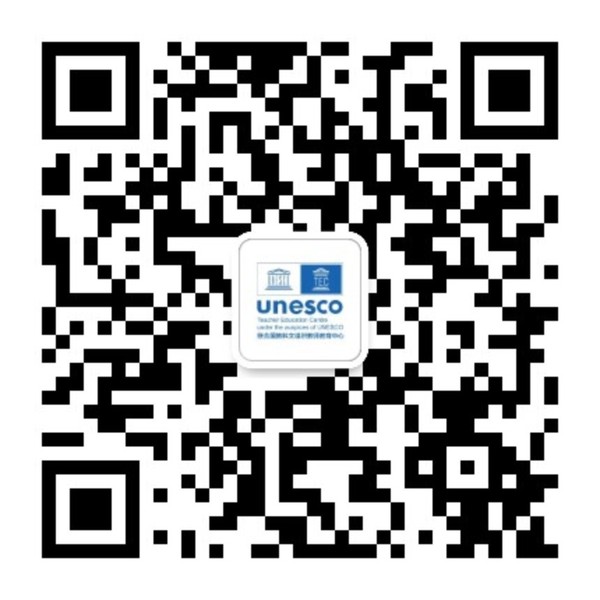On September 24, 2024, the 2024 Shanghai Training Program for Brazilian Gold Medal Mathematics Teachers, hosted by the UNESCO Teacher Education Centre (hereinafter referred to as the Centre), successfully concluded. At the invitation of Professor José Antonio Puppim de Oliveira, a senior expert from Fundação Getulio Vargas (FGV) University, Professor Huang Xingfeng, Chief Expert of the China-Brazil Mathematics Teacher Professional Development Program at the Centre; Dr. Ding Ruoxi, Program Coordinator; Dr. Shen Yihua, STEM Education Expert; and Zhang Yunji, a doctoral student from Shanghai Normal University, visited various departments and university institutions in Brazil. The Chinese and Brazilian sides conducted discussions and exchanges on mathematics education, national curricula, multi-country cooperation experiences, and lesson studies.
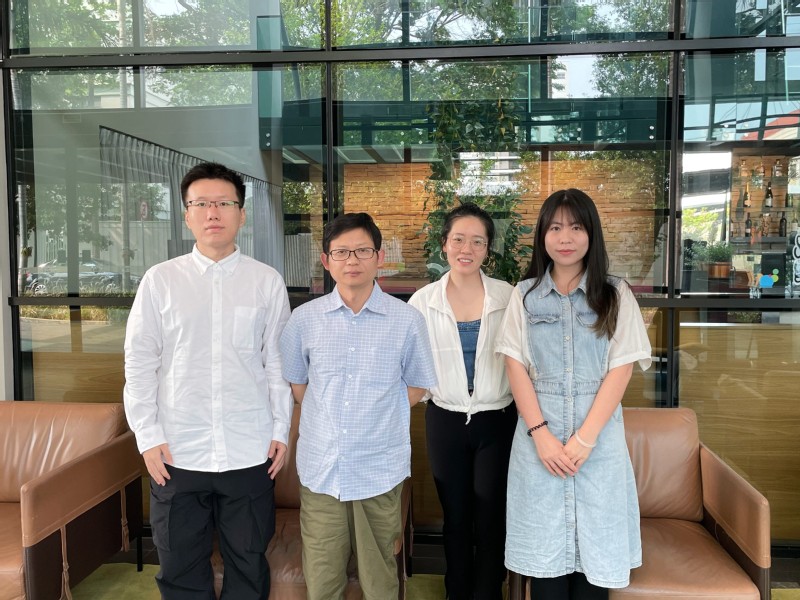
The TEC’s delegation
First stop: São Paulo State Department of Education
On the afternoon of September 26, the Centre’s team, together with Professor Puppim, visited the São Paulo State Department of Education. They held in-depth discussions with Mr. Renato Feder, Director of the Department of Education, and relevant personnel responsible for mathematics teacher professional development on China-Brazil mathematics exchanges and teacher training. Professor Huang Xingfeng and Dr. Shen Yihua introduced Shanghai’s curriculum standards and teaching philosophy to Director Feder, and briefly outlined the itinerary of the Brazilian gold medal teachers’ visit to Shanghai. Dr. Ding Ruoxi reviewed the Centre’s previous educational exchanges and cooperation with the United Kingdom, Australia, Tanzania, ASEAN countries, and other regions. Director Feder presented the current educational situation in São Paulo State to the Centre’s team and personally demonstrated the application functions of the São Paulo State Education Big Data Monitoring Platform. Finally, the two sides exchanged gifts as a token of friendship.
|
|
|
|
|
|
|
|
|
|
|
|
Second stop: International Affairs Office of São Paulo Municipal Government
On the evening of September 26, the Centre’s team, together with Professor Puppim, visited the International Affairs Office of São Paulo Municipal Government. Mr. Flávio Patrício, Director of the Office; Ms. Rafaela Souza, Affairs Consultant; and relevant personnel responsible for teacher international exchanges had a lively discussion on the China-Brazil mathematics teacher exchange and schedule arrangement. The two sides exchanged gifts to mark their friendship.
|
|
|
|
|
|
|
|
|
Third stop: Annual Conference of the Brazilian National Association of Mathematics Teachers at the State University of Campinas
From September 27 to 28, the Centre’s team traveled to the State University of Campinas to attend the Annual Conference of the Brazilian National Association of Mathematics Teachers. Professor Puppim and Professor Jorge Lira (member of the Academic Committee of the Brazilian Mathematics Teachers’ Olympiad and professor at the Federal University of Ceará) shared the origin and implementation process of the Brazilian High School Olympiad under the theme Formative Assessment for Teacher Professional Development and International Exchange of Teaching Practices. Professor Puppim mainly introduced the original intention, goals, and support received during the implementation of the Olympiad, while Professor Lira focused on elaborating the conceptual basis of the Olympiad, especially how to assess teachers’ Content Pedagogical Knowledge during selection. He also gave specific examples, such as how teachers diagnose students’ answers and analyze the causes of errors during the first-stage answering process. These vivid examples demonstrated the practical operation of teacher selection and deepened participants’ understanding of the project’s assessment system.
|
|
|
|
|
Professor Huang Xingfeng and Dr. Shen Yihua provided an in-depth explanation of key competencies in China’s national mathematics curriculum, helping participants better understand China’s concepts and goals in mathematics education. Doctoral student Zhang Yunji briefly reviewed the overall schedule of the Shanghai Training Program for Brazilian Gold Medal Mathematics Teachers, with a detailed introduction to the lesson study process in the program. This not only gave participants a preliminary understanding of China’s curriculum content and teaching research group activities but also provided them with a clearer picture of the implementation details of the program in Shanghai.
|
|
|
|
|
|
|
|
|
|
|
|
The 11 Brazilian gold and silver medal mathematics teachers who visited Shanghai also made reports and exchanges, sharing their impressions and experiences in Shanghai. Most teachers mentioned the process of group lesson preparation and mutual discussions among teachers they witnessed in Shanghai. Milena, one of the Brazilian gold medal mathematics teachers, looked to the future and hoped to introduce Shanghai’s lesson preparation model into Brazil’s teacher training system. José and Reubens were deeply impressed by the teaching philosophy of Shanghai’s mathematics classrooms, particularly agreeing with Shanghai’s approach of focusing on a few key points and exploring them in depth. Roberto and Romis believed that the culture of mutual respect and cooperation among Shanghai teachers is the key to the success of Shanghai’s mathematics education. Felipe focused on comparing the differences in mathematics education between China and Brazil. Finally, members of the Executive Committee and Academic Committee of the Brazilian Mathematics Teachers’ Olympiad presented certificates to all teachers who visited Shanghai.
|
|
|
|
|
|
|
|
|
|
|
|
|
|
|
|
|
|
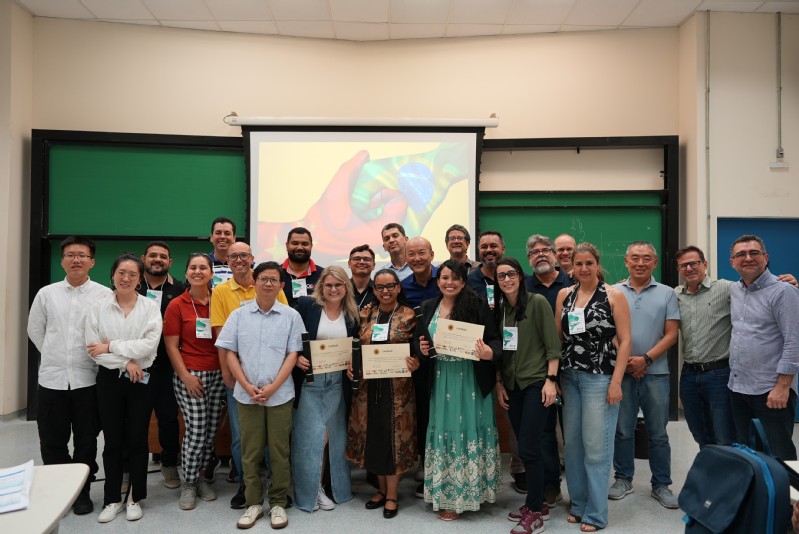
Fourth stop: Research Design Seminar at the State University of Campinas
On September 29, the Centre’s team held in-depth discussions on research design with members of the Academic Committee at the State University of Campinas. Professor Lira introduced a research design scheme based on teacher knowledge and integrated with lesson study implementation. Professor Huang Xingfeng actively participated in the discussion, providing professional opinions and constructive suggestions.
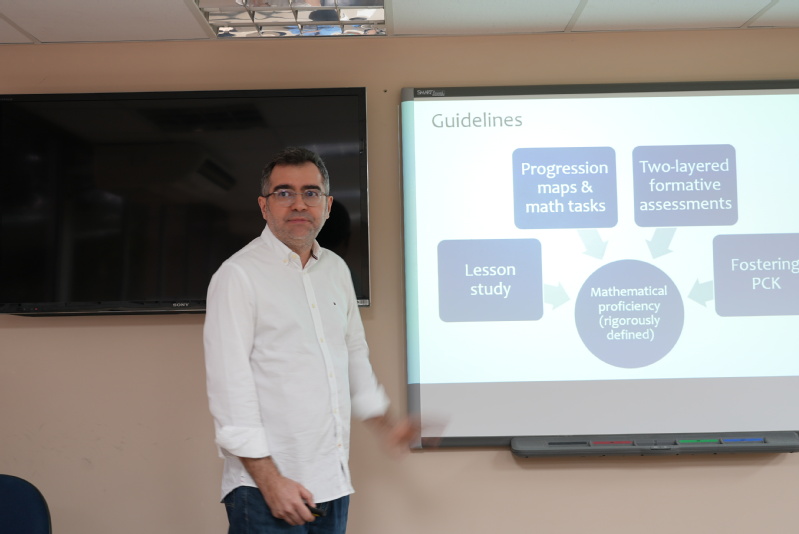
Fifth stop: Teacher Professional Development Seminar at Instituto Península
On September 30, at the invitation of Professor Lira, the Centre’s team went to Instituto Península to attend a teacher professional development seminar. At the seminar, Dr. Ding Ruoxi briefly introduced the Centre’s past experiences and latest progress in exchanges and cooperation with mathematics teachers from the United Kingdom and Tanzania, showcasing the positive achievements made in the field of teacher professional development. Subsequently, doctoral student Zhang Yunji elaborated on the entire process of the Brazilian teachers’ visit to Shanghai, focusing on the interaction and cooperation model of teaching research groups, and briefly explained the implementation of lesson studies. This further promoted the exchange and integration of educational concepts between China and Brazil, laying a solid foundation for future cooperation.
|
|
|
|
|
|
|
|
|
Sixth stop: Seminar at the Centre of Excellence in Teacher Policies, Federal University of Ceará
On October 1, at the invitation of Professor Lira, the Centre’s team visited the Centre of Excellence in Educational Policies at the Federal University of Ceará to participate in a seminar. At the seminar, Professor Huang Xingfeng and Dr. Shen Yihua provided an in-depth introduction to key competencies in China’s national mathematics curriculum to teachers and researchers at the Centre of Excellence, with detailed analysis and interpretation through specific cases. Dr. Ding Ruoxi, drawing on past cooperation and exchange experiences, showcased the Centre’s remarkable achievements in international educational cooperation. Doctoral student Zhang Yunji gave a detailed explanation of the specific arrangements for the Brazilian teachers’ visit to Shanghai, focusing on the organization of teaching research group activities and the implementation process of lesson studies. During the seminar, participants showed great interest in China’s practical experience in mathematics education, actively asked questions, and the discussion was lively.
|
|
|
|
|
|
|
|
|
|
|
|
|
|
|
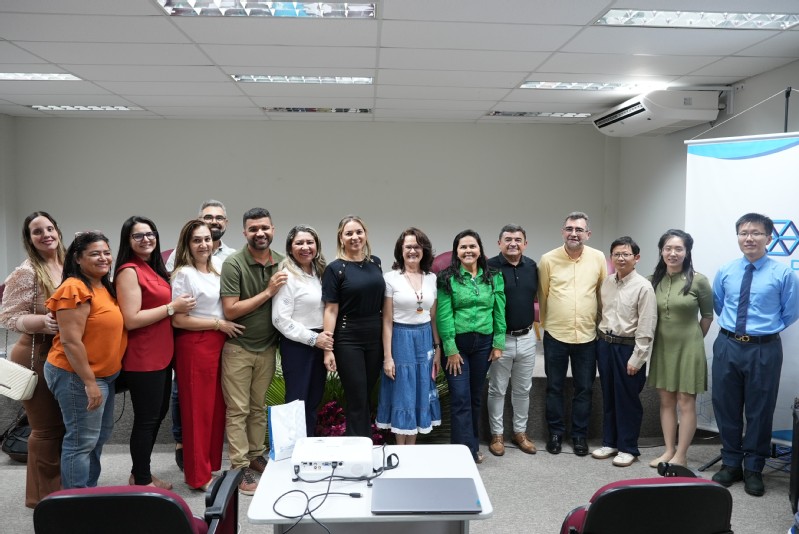
Seventh stop: Interactive Session on In-Service Teacher Professional Development at the Centro Integrado de Pesquisas Matemáticas, Federal University of Ceará
On October 2, at the invitation of Professor Lira, the Centre’s team visited the Centro Integrado de Pesquisas Matemáticas (Integrated Centre for Mathematical Research) of the Federal University of Ceará to participate in a local teacher professional development program. Professor Lira first led the Centre’s delegation to visit various well-equipped dedicated classrooms in the research centre. Afterwards, local mathematics teachers gave a detailed introduction to the curriculum design schemes they are currently developing to the visitors, and the two sides conducted positive and fruitful interactive exchanges.
|
|
|
|
|
|
|
|
|
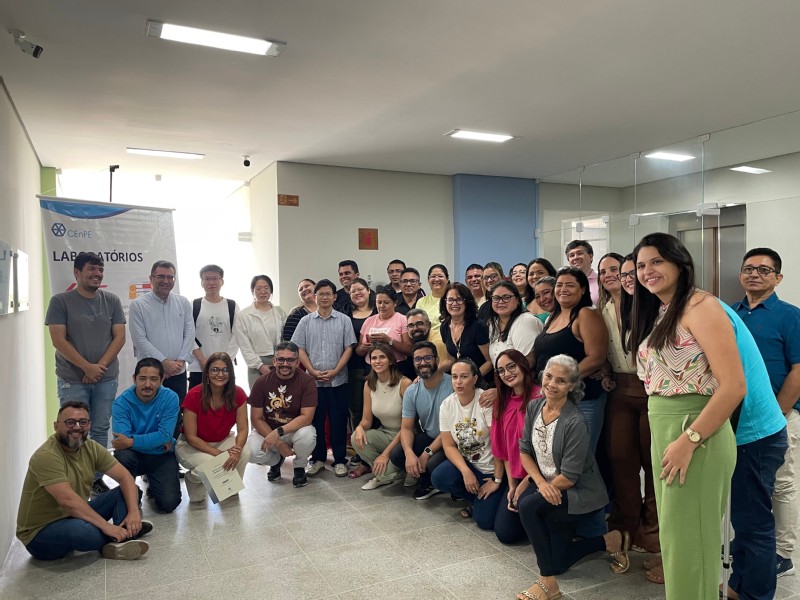
This intercontinental dialogue on mathematics education not only demonstrated the in-depth cooperation and international vision of China and Brazil in teacher professional development but also added special significance to the celebration of the 50th anniversary of the establishment of diplomatic relations between the two countries. Through multiple field visits and in-depth discussions, the Centre’s team shared Shanghai’s mathematics education experience with Brazilian officials, teachers, and experts, jointly explored teaching concepts and teacher training models, and deepened mutual understanding and trust. This activity not only consolidated the foundation of China-Brazil cooperation in education but also opened up new possibilities for future multi-country educational cooperation.



